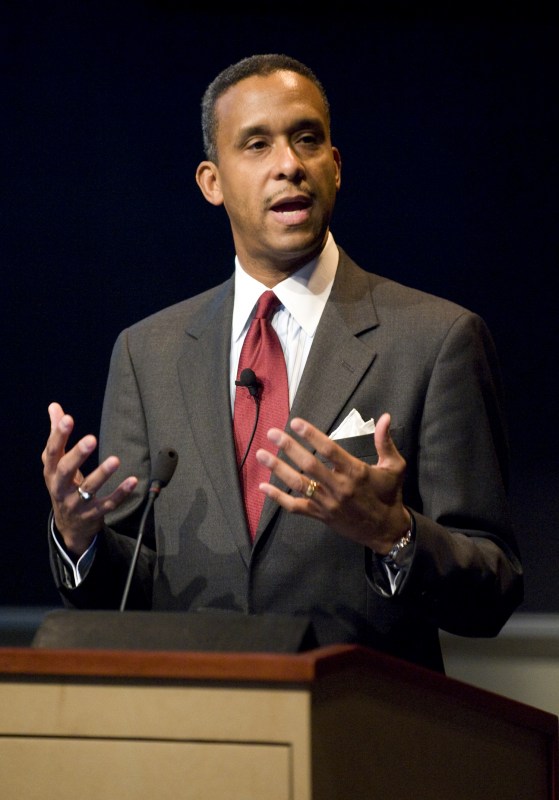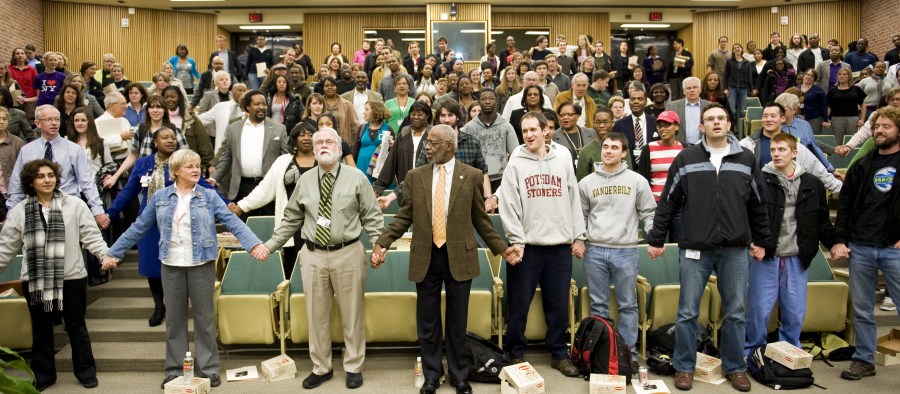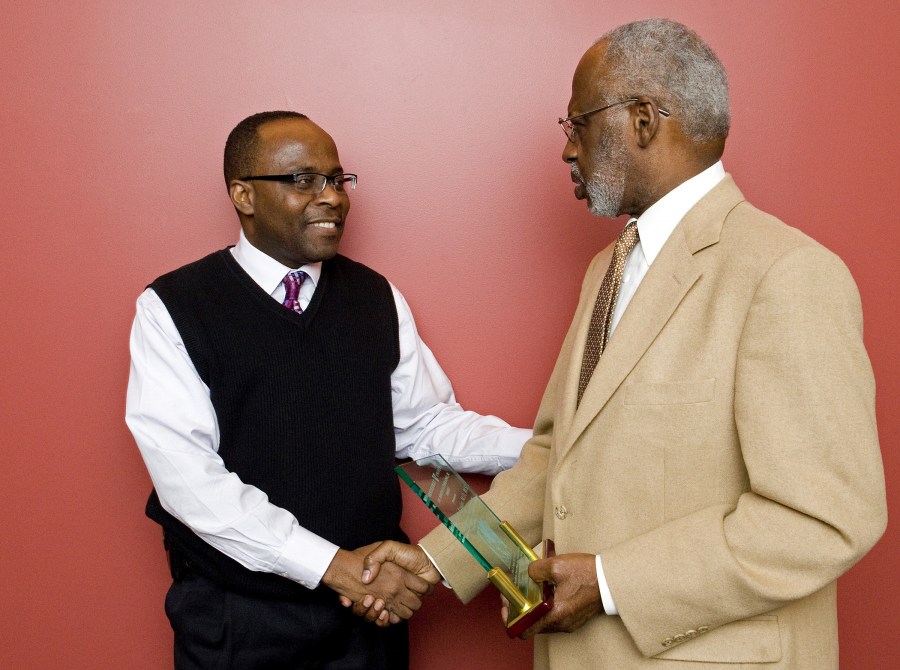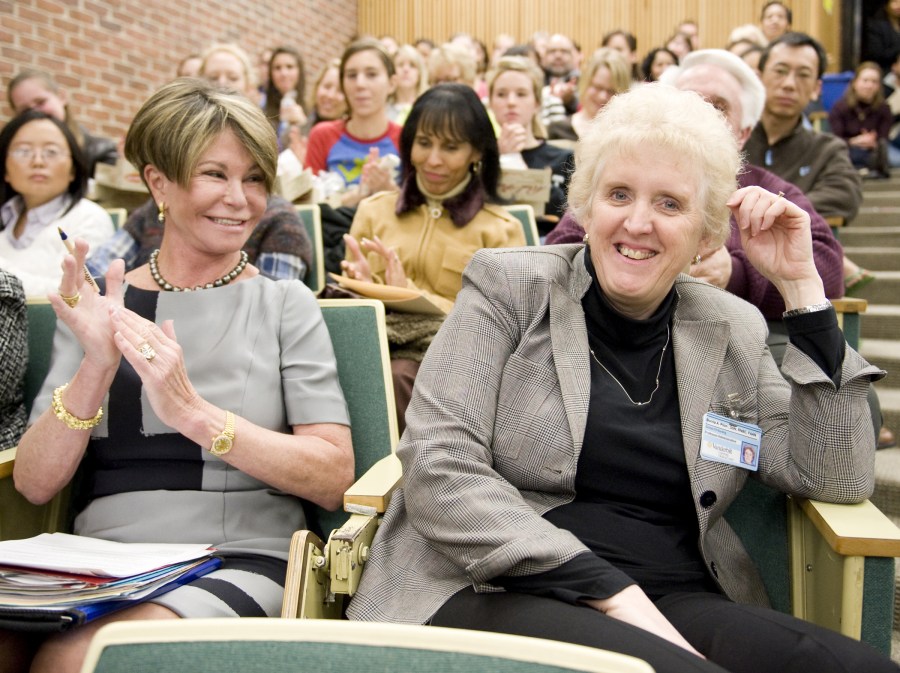
Wayne Riley, M.D., M.P.H., MBA, delivers Monday’s Martin Luther King Jr. Commemorative Lecture. (photo by Joe Howell)
Lecture examines health disparities as social injustice
Students, faculty and staff packed Light Hall Monday to hear Wayne Riley, M.D., M.P.H., MBA, deliver the Martin Luther King Jr. Commemorative Lecture on Monday.
As CEO of Meharry Medical College and professor of Medicine at Vanderbilt University School of Medicine, Riley shared what he believes King would think about health care disparity and inequity in America today.
Riley pieced together important people and flashpoints in Dr. King's life that illustrated the late civil rights leader's concern over health care as a social injustice.

Audience members join hands to sing “We Shall Overcome” during Monday’s Martin Luther King Jr. Commemorative Lecture. (photo by Joe Howell)
On the topic of inequities, he shared continued concerns regarding the physician workforce, specifically, that less than 2 percent of U.S. physicians were African-American in 1960 and that, according to the latest data available, only 4 percent of U.S. physicians are African-American and 5 percent Hispanic.
Yet, studies show that minority doctors have a great propensity to practice in underserved areas. He noted the same trend lines were true for nurses.
“African-American physicians tend to gravitate toward the areas that are underserved. This has been our calling for many years, and highlights the fact that, Dr. King would argue, it is an investment that pays off in terms of where they work,” said Riley, who called for greater diversity, and more women, throughout all health care professions and academia.
While discussing health care disparities, Riley cited crucial gaps in care between different populations across the lifespan, with studies showing that black infants are 2.5 times more likely to die in infancy than white babies. Life expectancy for black men and women remains roughly a decade less than white men and women.
“I think Dr. King would say these disparities pose a significant moral and ethical dilemma for our nation,” said Riley.

George Hill, Ph.D., right, presents one of this year’s Martin Luther King Jr. Service Awards to Adetola Kassim, M.D., M.S. (photo by Joe Howell)

Colleen Conway-Welch, Ph.D., left, applauds as Bonnie Pilon, D.S.N., R.N., learns she was named to receive one of this year’s Martin Luther King Jr. Service Awards. (photo by Joe Howell)
White patients were more likely to receive care than black patients, and black women received the least care of any group.
“Dr. King would be very worried about this body of work that would indicate that we have a lot to do in the house of medicine, and he would challenge us to do better,” Riley said.
Also at Monday's event, this year's Martin Luther King Jr. Service Award was presented to the School of Medicine's Adetola Kassim, M.D., M.S., and the School of Nursing's Bonnie Pilon, D.S.N., R.N. Kassim was honored for his extensive work with stem cell research, and Pilon was recognized for expanding access to health care for Nashville's underserved.













